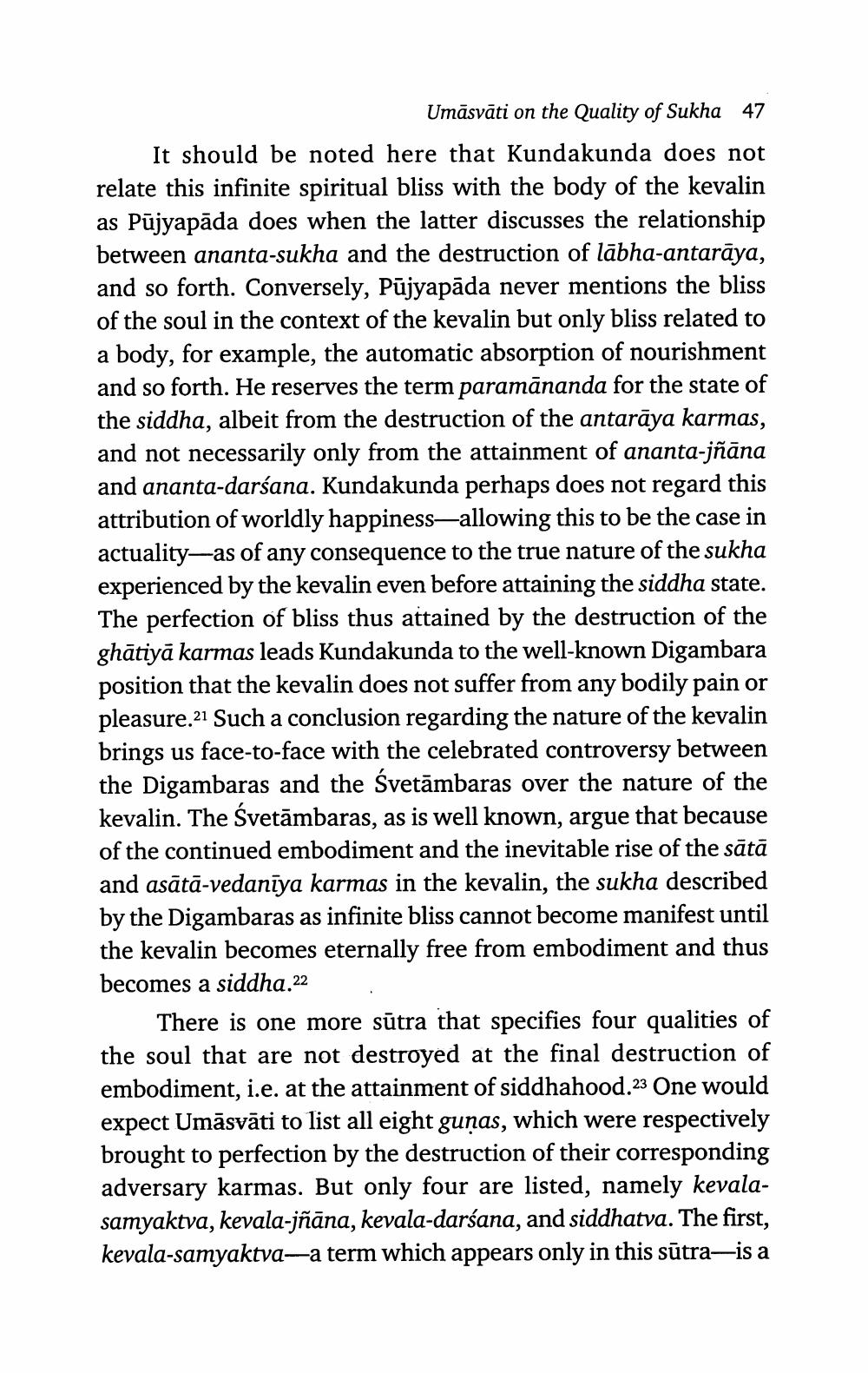________________
Umāsvāti on the Quality of Sukha 47
It should be noted here that Kundakunda does not relate this infinite spiritual bliss with the body of the kevalin as Pūjyapāda does when the latter discusses the relationship between ananta-sukha and the destruction of lābha-antarāya, and so forth. Conversely, Pūjyapāda never mentions the bliss of the soul in the context of the kevalin but only bliss related to a body, for example, the automatic absorption of nourishment and so forth. He reserves the term paramānanda for the state of the siddha, albeit from the destruction of the antarāya karmas, and not necessarily only from the attainment of ananta-jñāna and ananta-darśana. Kundakunda perhaps does not regard this attribution of worldly happiness—allowing this to be the case in actuality-as of any consequence to the true nature of the sukha experienced by the kevalin even before attaining the siddha state. The perfection of bliss thus attained by the destruction of the ghātiyā karmas leads Kundakunda to the well-known Digambara position that the kevalin does not suffer from any bodily pain or pleasure.21 Such a conclusion regarding the nature of the kevalin brings us face-to-face with the celebrated controversy between the Digambaras and the Svetāmbaras over the nature of the kevalin. The Śvetāmbaras, as is well known, argue that because of the continued embodiment and the inevitable rise of the sātā and asātā-vedanīya karmas in the kevalin, the sukha described by the Digambaras as infinite bliss cannot become manifest until the kevalin becomes eternally free from embodiment and thus becomes a siddha.22
There is one more sūtra that specifies four qualities of the soul that are not destroyed at the final destruction of embodiment, i.e. at the attainment of siddhahood.23 One would expect Umāsvāti to list all eight gunas, which were respectively brought to perfection by the destruction of their corresponding adversary karmas. But only four are listed, namely kevalasamyaktva, kevala-jñāna, kevala-darśana, and siddhatva. The first, kevala-samyaktva—a term which appears only in this sūtra—is a




